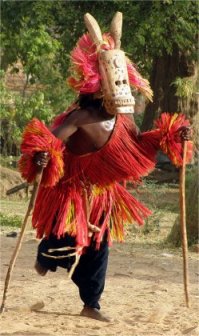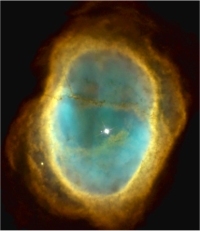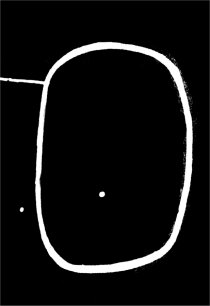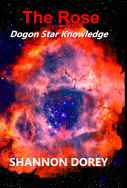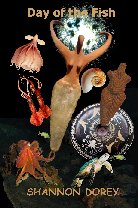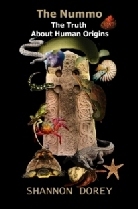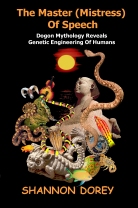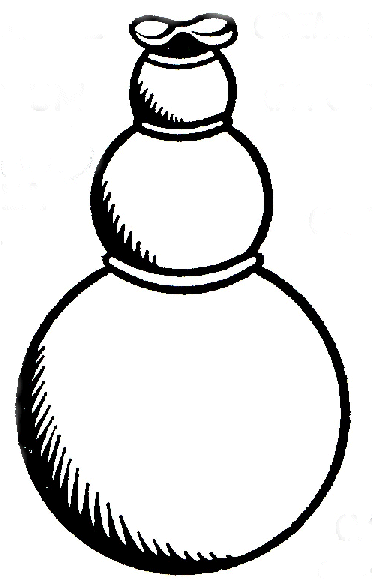
The New World SystemMarcel Griaule, Dieu d'eau p.45 and Conversations with Ogotemmêli p.39
Einstein believed in life after death because energy never dies. It rotates and transforms itself but it never dies. The Dogon also knew this and according to Ogotemmêli, "To draw up and then return what one has drawn - that is the life of the world."
Using our Sun as an example, astrophysicists predict that in around 5 billion years from now our Sun will reach the end of its lifetime and become a red giant star. When this happens, the Sun will begin to grow larger and as it expands it will swallow and destroy any planets or other celestial bodies in its path, including the Earth. Once it reaches a certain size it will then begin to emit gas and dust. This gas and dust will eventually form a nebula, which will ultimately create new life. Eventually the red giant (our Sun) will die completely and form a white dwarf star but the life it created will continue to evolve and form new planets.Dorey, The Rose p.8
Suns bigger than our Sun form even larger red giant stars and they explode as supernovas. The gas and dust ejected also creates nebulae. It is in these nebulae or stellar nurseries where new planets, Suns and life are created. Essentially what this means is that the death of one world creates the beginning of the next world. In other words, life in the Universe is constantly regenerating itself. The Dogon used swallowing and regurgitation metaphors, and nesting or recursion to explain this process.Dorey, The Rose pp. 8-9
The Dogon described three red giant stars as contributing to the creation and the regeneration of our Milky Way Galaxy and Solar System. Because red giants were considered pregnant Suns and associated with the divine feminine, young Dogon wives lived in their father's home until after the birth of their third child. Afterwards they moved into their husband's ginna (big family home).Dorey, The Rose p. 45 This mimicked what went on cosmically involving the three red giant stars giving birth to new worlds.
Because red giant stars were identified with the divine feminine by the Dogon, they came to symbolize the key female figures in the religion. In this way, the matter ejected from the red giant stars, which were considered pregnant Suns, was perceived by the Dogon as being their body parts. Once when a piece of meteor hit the Earth, the Dogon told the anthropologists that it was the heart of the Mistress of Speech. Not understanding the Dogon religion, the anthropologists were confused by this explanation.Dorey, The Rose p. 66
The Dogon also associated the creation of the cosmos with weaving and agriculture. It was the Mistress of Speech who was responsible for teaching weaving to humanity. This is because the teeth of the heddle in weaving were related to the creation of life and DNA.Dorey, The Master (Mistress) of Speech p. 84
These things were associated with the primeval granary, where the seeds were stored that created life on the Earth. The primeval Granary was also the Smithy and the place where the Universe came into being. My research in, The Rose, reveals that the Dogon associated the Smithy with a blackhole.
Griaule described how, Ogotemmêli,
his head bowed and his hands on the nape of his neck, was lost in the past history of the heavens. At last he arrived at the final stratum of symbols, which showed the Universe compressed within the walls of the primal granary, as a body filled with life and absorbing food. "What is eaten," he said, "is the sunlight. What is excreted is the dark night. The breath of life is the clouds, and the blood is the rain that falls on the world."Griaule, Conversations with Ogotemmêli, p. 40
The constant regeneration of life from Suns is what Ogotemmêli was referring to when he said, "what is eaten is the sunlight." This is because seeds ultimately form from a nebula created from the death of a red giant star (a dying Sun). Water also comes from nebulae and so the rain was perceived as the blood of the Mistress of Speech. Her breath was the clouds and her excrement was the night.
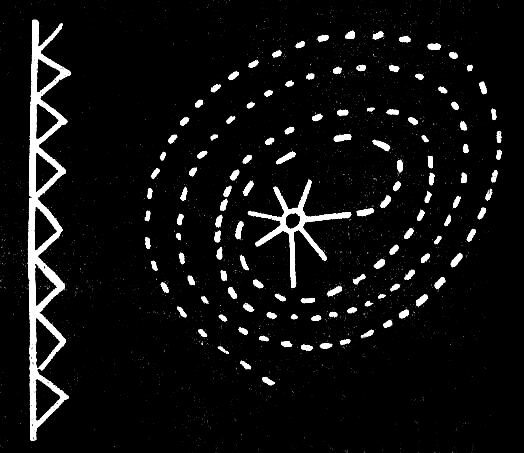 Seven Vibrations of the SoulReplication of a drawing found on page 442 of the Pale Fox |
In another scenario, the Dogon said that during creation everything spun in the opposite direction and then burst freeing everything inside it. This unwinding made a loud sound, which was associated with seven vibrations. The Dogon viewed the eighth vibration as the new creation. The Dogon were referring to a supernova explosion in this scenario, which they taught using the musical octave as a metaphor. The eighth note was considered the first in a new series of notes or the first vibration in the new creation.Dorey, The Rose p. 21
The zigzag line on this picture, of the Seven Vibrations of the Soul, was described by the Dogon as the zigzag path of the world aduno ozu tonnolo.Dorey, The Rose p. 21 It was a symbol of the vibration of the spiralling line. It was associated with the "eight voices [notes] of the Hogon's horn" which were blown during the ritual to celebrate the supernova and the creation of the world. In association with the sounds of the horn, the Dogon walked in a zigzag line.Dorey, The Rose p. 92
Griaule and Dieterlen reported that
The country of the Dogon has been organized as far as possible in accordance with the principle that the world developed in the form of a spiral... The Dogon even say that, in accordance with the original rule, when land is to be cleared the cultivators must work with their backs to the edge of the last field and the area cleared must be of such a shape that the opposite side is much longer than the side from which they start. Thus each field will be an irregular and, as it were, twisted quadrilateral, two sides of which will form a very wide angle opening towards the fields which will subsequently be cleared. This angle symbolizes the continuous extension of the world.The Dogon, African Worlds, Griaule and Dieterlen, p.94
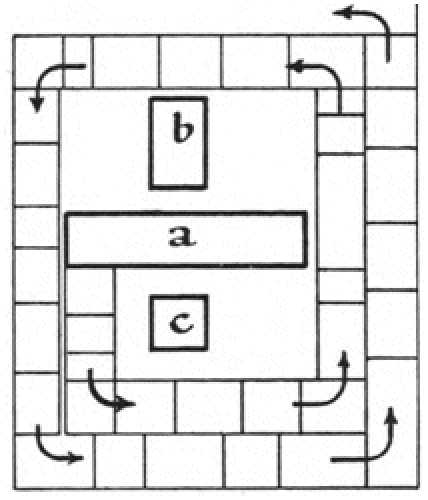 Layout of the Cultivated LandThe Dogon, African Worlds, Griaule and Dieterlen, p.95 |
According to Griaule and Dieterlen,
"As the theoretical arrangement of fields and the process of clearing the ground reproduce the primitive spiral form, so the method of cultivation recalls the more delicate vibratory movement of the axis of the spiral. This screw-like movement, which is represented on shrines and in caves by a zigzag line, is reproduced in the old method of cultivation which is like the technique of weaving; it consists in starting on the north side, moving from east to west and returning from west to east. ...Moreover, the cultivator advances along the line changing his hoe from one hand to the other at every pace, like the action of weaving, whereby the thread of the woof is fitted into the warp, which itself symbolizes cultivation and the advance of man's [humanity's] labour in uncultivated land.The Dogon, African Worlds, Griaule and Dieterlen, p.95
In his book on African Fractals, Ron Eglash reports that in Europe and America "cities are laid out in a grid pattern of straight streets and right-angle corners." In contrast, traditional African settlements tend to use fractal structures, which he describes as "circles of circles of circular dwellings, rectangular walls enclosing ever-smaller rectangles and street in which broad avenues branch down to tiny footpaths with striking geometric repetition."Ron Eglash, African Fractals, Modern Computing and Indigenous Design, Rutgers University Press, New Brunswick, New Jersey, and London, 2005. pp. 4-5 When describing recursion, Eglash reports that "these reorganizations are not merely layering one on top of the other; rather the output of each reorganization becomes the input for the next."Ron Eglash, African Fractals, Modern Computing and Indigenous Design, Rutgers University Press, New Brunswick, New Jersey, and London, 2005. p. 131 Eglash uses the structure of the three pots found in the Dogon granary (shown above top) to show this recursion. "The recursion is emphasized in the way that each new pot begins before the previous one ends."Ron Eglash, African Fractals, Modern Computing and Indigenous Design, Rutgers University Press, New Brunswick, New Jersey, and London, 2005. p. 132
My research indicates that these recursive pots have to do with the regenerative aspects of red giant stars. According to the Dogon elder Ogotemmêli, the bottom pot of these three was the first and a symbol of the first Sun and the womb.Marcel Griaule, Dieu d'eau p.45 and Conversations with Ogotemmêli p.142
When Griaule wrote about Ogotemmêli's description of the pots in the granary, he said everything came alive.
"As Ogotemmêli spoke, the deserted granary seemed to come to life, and the setting Sun lighting up the west beyond the gorges, heighted the illusion. The walls of the building became tinged with rose colour, and cast gleams of light on the sandstone surfaces and the straw of the dung-heap. On the roof a bunch of purple sorrel stood out like fire. The moment was near when all the western walls of Upper and Lower Ogol would be aflame. All the visible surface of the granary shared in this prodigal display of light, while in the dark interior the wonders of the past came to life again."Marcel Griaule, Conversations with Ogotemmêli p.39 and Dieu d'eau p.44
In his book Eglash asks the question, "Did precolonial Africans actually understand and apply fractal geometry?"
Based on my research, I would have to say yes, the Dogon understood this absolutely.
For more information on the Dogon religion refer to my books, The Master of Speech, The Nummo, Day of the Fish and The Rose. These books are available for purchase on the right.
